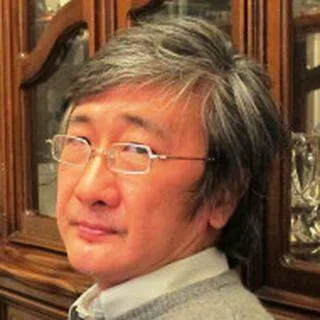Why Hou Yu-ih won the KMT presidential nomination and Terry Gou did not
With about eight months to go to the next Taiwan presidential election, commentator Gu Er De explains why Hou Yu-ih won the nomination as KMT presidential candidate, while Terry Gou failed despite his best efforts.
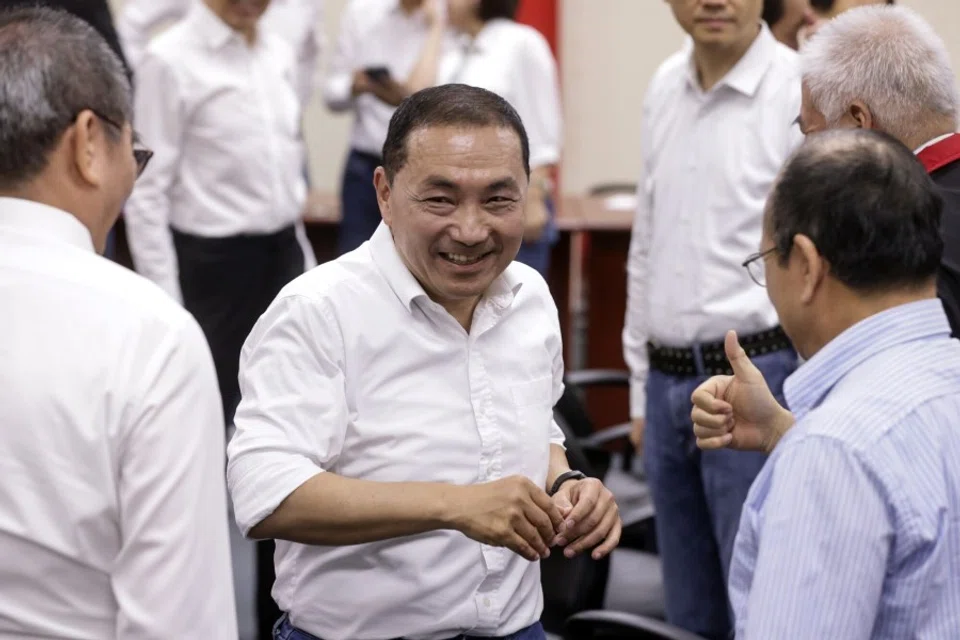
The Taiwan presidential election is set for 13 January next year, about eight months from now, with the inauguration on 20 May; this means the incumbent president Tsai Ing-wen has exactly one year left in her term. Right now, the presidential election is heating up with the nomination of the Kuomintang (KMT) candidate.
The ruling Democratic Progressive Party (DPP) has long set its course. With no competitors, there is no doubt that the current party chairman and vice-president, William Lai, will represent the DPP in the battle to defend its political power - he was officially nominated by the party on 12 April.
Another potential contender for the top position is the leader of the Taiwan People's Party (TPP), former Taipei mayor Ko Wen-je. On 17 May, the TPP officially selected Ko as their presidential candidate. The candidates for these two parties were decided long ago, so the nominations were just a formality.
However, the situation is more complex for the KMT. In early May, with Foxconn founder and once Taiwan's richest man Terry Gou joining the fray, the electoral race became heated. Finally, on 17 May, it was officially announced that New Taipei City mayor Hou Yu-ih would represent the KMT.
Terry Gou's KMT candidate bid thwarted
Four years ago, Gou joined the KMT's presidential primary, but lost to Han Kuo-yu. He believed the primary process was unfair and subsequently withdrew from the KMT, criticising the party as "a conservative party that the Taiwanese people would not recognise". However, earlier this year, he sought the KMT nomination for the 2024 presidential election, shamelessly saying - at the age of 72 - that his departure from the party four years ago might have been due to youthful impulsiveness.
But according to party rules, he can only reapply for party membership from 27 September, after a four-year period of withdrawal. And even if he regains party membership, he would have to wait another four months to be eligible to run for president, by which time the election would be over. To promote unity and cooperation within the party, KMT chairman Eric Chu announced in March that the nomination process would be through recruitment, which would not be limited to party members.
Subsequently, Gou positioned himself to run for president. On 5 April, he publicly apologised to the KMT and his supporters for leaving the party four years ago and even bowed. He then used various publicity and public relations tactics to boost his support in opinion polls (which is one of the criteria for recruitment). And from 7 to 12 May, he splurged on four mass rallies covering southern to northern Taiwan, to create momentum.
Despite meticulous PR, Gou came across as contrived and affected.
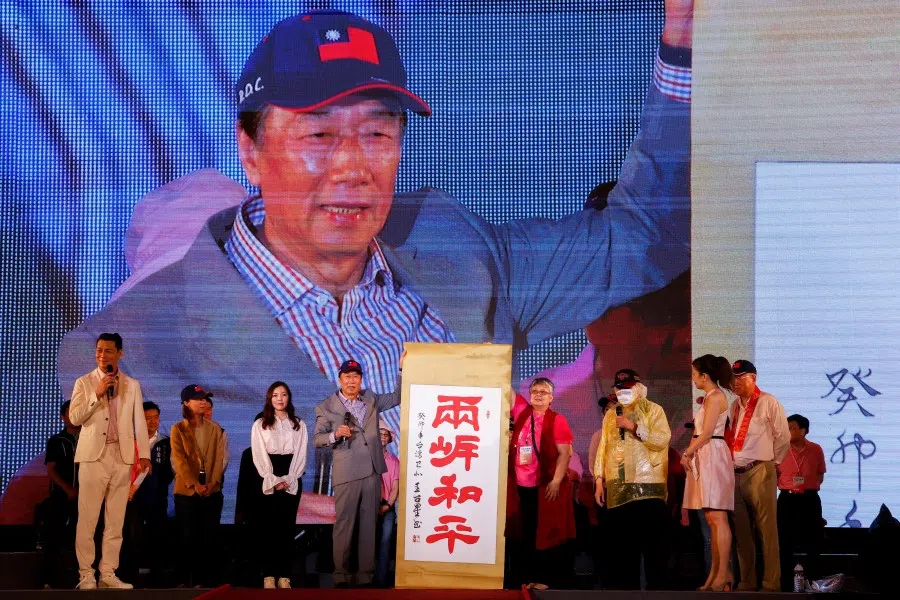
Gou's intention was to emulate the "Han craze" that Han Kuo-yu previously generated across Taiwan, forcing the KMT to nominate him.
Gou's actions were all professionally and carefully planned. This billionaire with an estimated net worth of US$7.4 billion - according to Forbes - spared no expense in order to secure the nomination. On 11 May, he invited well-known host Hu Gua to emcee a rally, with Hu claiming that his hosting fee was a "friendly price" of only US$65,300.
To connect with the grassroots, Gou's campaign staff gave him the very local nickname "Taiwan Ah Ming", only for Robert Tsao - another prominent figure in the electronics industry who has gained a strong local identity in recent years - to openly mock him: "You may want everyone to call you 'Ah Ming', but I still prefer to call you 'Old Guo'." Despite meticulous PR, Gou came across as contrived and affected.
Gou's large-scale rallies attracted tens of thousands of people, but few public endorsements by heavyweight politicians. He also revealed an insufficient understanding of real issues in Taiwan during his speeches, where he was often found digressing and discussing his own insights. When talking about Kaohsiung's economy, he criticised the Tsai administration for not helping Kaohsiung's development, but his own thinking about Kaohsiung is stuck in the era when the city was ranked among the world's top container ports, over 20 years ago. In terms of the global division of labour, as Taiwan shifts focus to high-level precision component manufacturing, these tiny products with high added value are no longer transported by container ships, but are delivered globally by air.
They worry that if Gou becomes the main candidate in next year's election, he may make whimsical proposals that are difficult to control, affecting the electoral prospects of KMT legislators...
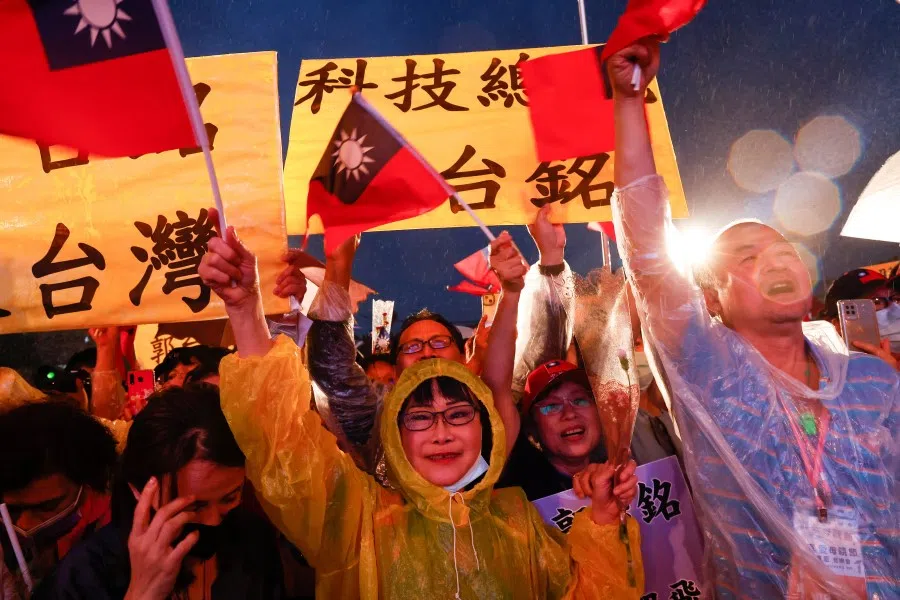
Besides, his suggestion of building a nuclear power plant in Kaohsiung and a small-scale nuclear power plant in every county and city has drawn criticism. It is evident that Gou (or his campaign staff) is not aware that small modular reactors (SMRs) or the development of nuclear fusion and fission power are not yet in commercial operation. Previously, Hon Hai aggressively developed robots to save on labour. In early May, Gou said at a symposium that if the People's Liberation Army invades Taiwan, "if they send 80,000 soldiers, we can send 80,000 robots to fight back."
These "imaginative" policy ideas have not been discussed with local political leaders or representatives within the party, causing concerns among KMT legislators and mayors. They worry that if Gou becomes the main candidate in next year's election, he may make whimsical proposals that are difficult to control, affecting the electoral prospects of KMT legislators and spoiling the party's attempt to gain a majority in parliament.
Hou's biggest weakness is cross-strait diplomacy, in which he keeps a low profile and avoids making mistakes.
Hou Yu-ih: steady as he goes
In contrast, when it comes to personal relations, the steadier Hou Yu-ih is ahead of Gou. In legislative districts where there is internal competition for KMT nominations, Hou has successfully mediated to avoid infighting within the party. Hou's predictability has also earned trust within the party. Based on opinion polls and feedback from KMT mayors, city councillors, legislative nominees and legislators, the KMT decided on either Hou or Gou as its presidential candidate. Hou only slightly outperformed Gou in opinion polls, but the majority of mayors, city councilors, and legislators supported Hou, who emerged as the winner.
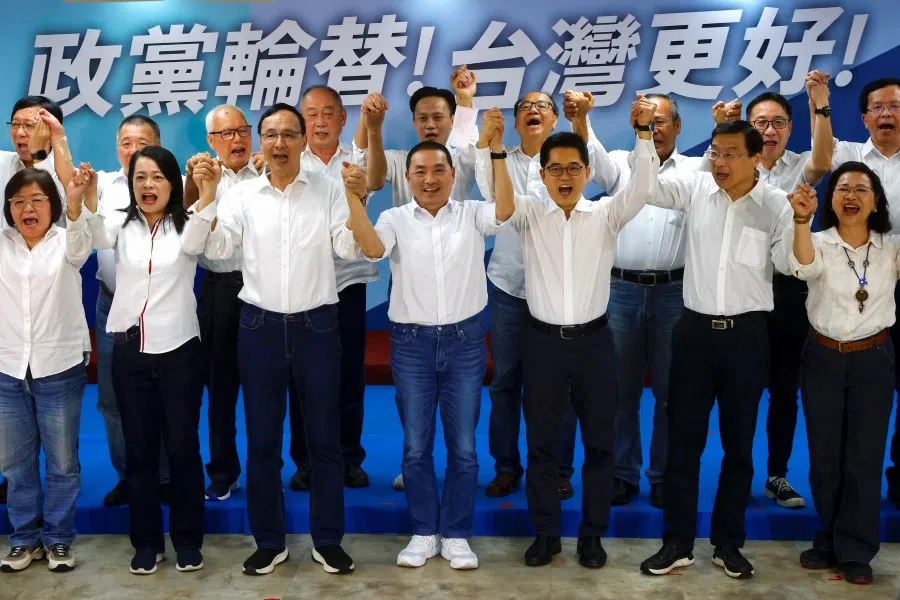
Hou's biggest weakness is cross-strait diplomacy, in which he keeps a low profile and avoids making mistakes. When it comes to the 1992 Consensus, which Beijing sees as the foundation of cross-strait relations, Hou only expresses "respect" without mentioning "adherence"; he says he does not support Taiwan independence, but neither does he accept China's "one country, two systems" framework. When questioned about the basic principles of the US's policy towards Taiwan in the city council, Hou is unfamiliar with the topic and stubbornly refuses to respond, repeatedly asking: "What do you think?"
In contrast, the last public event where Gou had his best performance was related to cross-strait issues. On 13 May, he delivered a peace declaration in Kinmen, where he personally revised and memorised the declaration. He emphasised the basis of "respective interpretations of 'one China'" (referring to the People's Republic of China (PRC) according to Beijing and the Republic of China (ROC) according to Taipei), and called for the resumption of negotiations between the two sides, meaning a return to the cross-strait relationship during Ma Ying-jeou's presidency.
The problem is that Beijing has always insisted on "one China" and does not recognise "respective interpretations", and has vigorously suppressed the limited international space of the ROC. This is why the "one China, respective interpretations" narrative has been criticised and rejected by Taiwan's Green camp.
Beijing seems to be in sync with the KMT, focusing on taking down the DPP as its primary task.
It is worth noting that the KMT announced the nomination of Hou Yu-ih on the afternoon of 17 May. Coincidentally, on the same day, China's Taiwan Affairs Office (TAO) held its routine press conference in the morning, just before the seventh anniversary of Tsai Ing-wen's presidential inauguration on 20 May. The press conference became a platform to criticise the DPP government for "relying on external parties in seeking independence", and also arranged for journalists to ask questions about Terry Gou, Hou Yu-ih, and William Lai (but not Ko Wen-je).
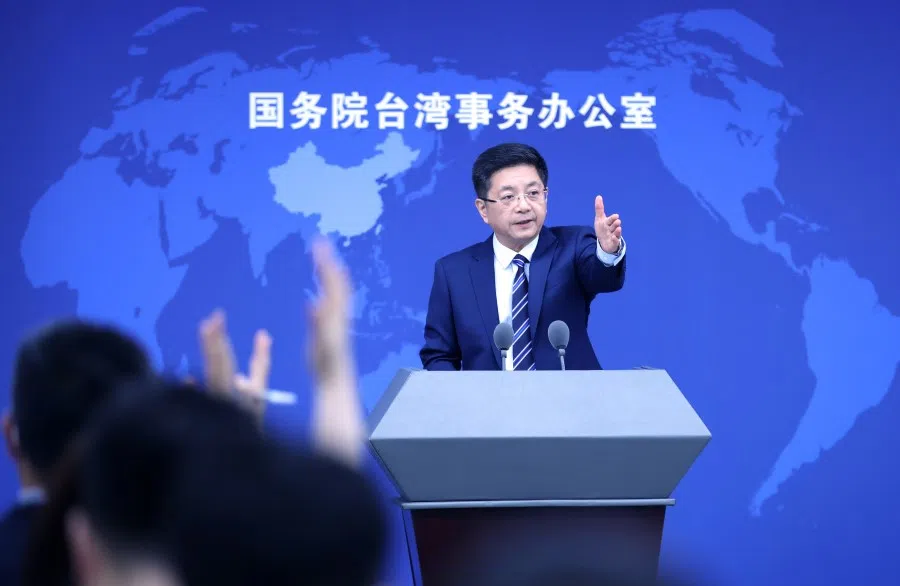
TAO spokesperson Ma Xiaoguang did not directly criticise William Lai's pro-independence stance during the press conference, but also showed no bias towards Gou and Hou. When asked about Hou's rejection of "one country, two systems", Ma Xiaoguang did not criticise Hou but reiterated that Beijing insists on "one country, two systems" in order to "accommodate Taiwan's current situation". Beijing seems to be in sync with the KMT, focusing on taking down the DPP as its primary task.
But Ma said something intriguing during the press conference: "The KMT leadership and relevant parties have repeatedly said that we must unite and not divide. We are watching..." With the changing electoral situation, besides "watching" the Taiwan election, will Beijing have any concrete actions? This is worth paying attention to in the coming months leading up to the Taiwan election.
This article was first published in Lianhe Zaobao as "侯友宜代表国民党选总统的原因".
